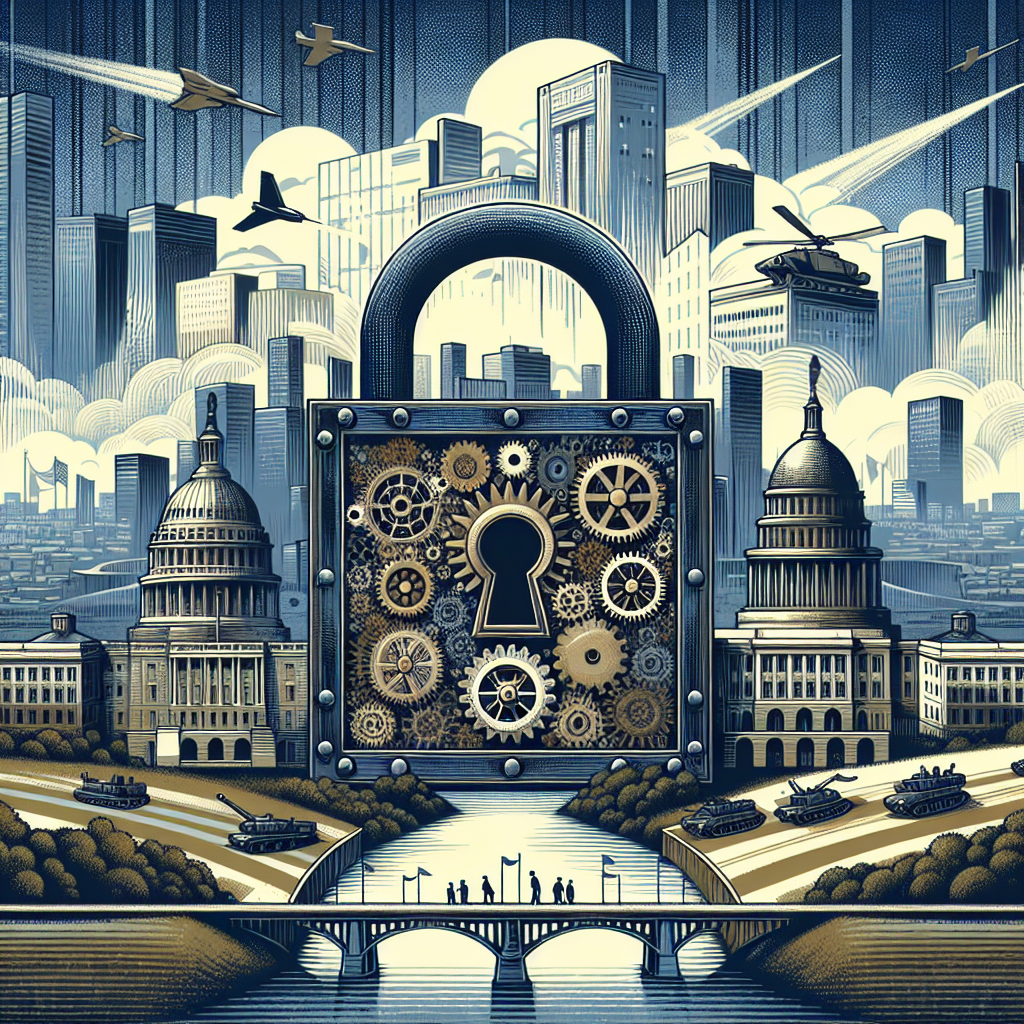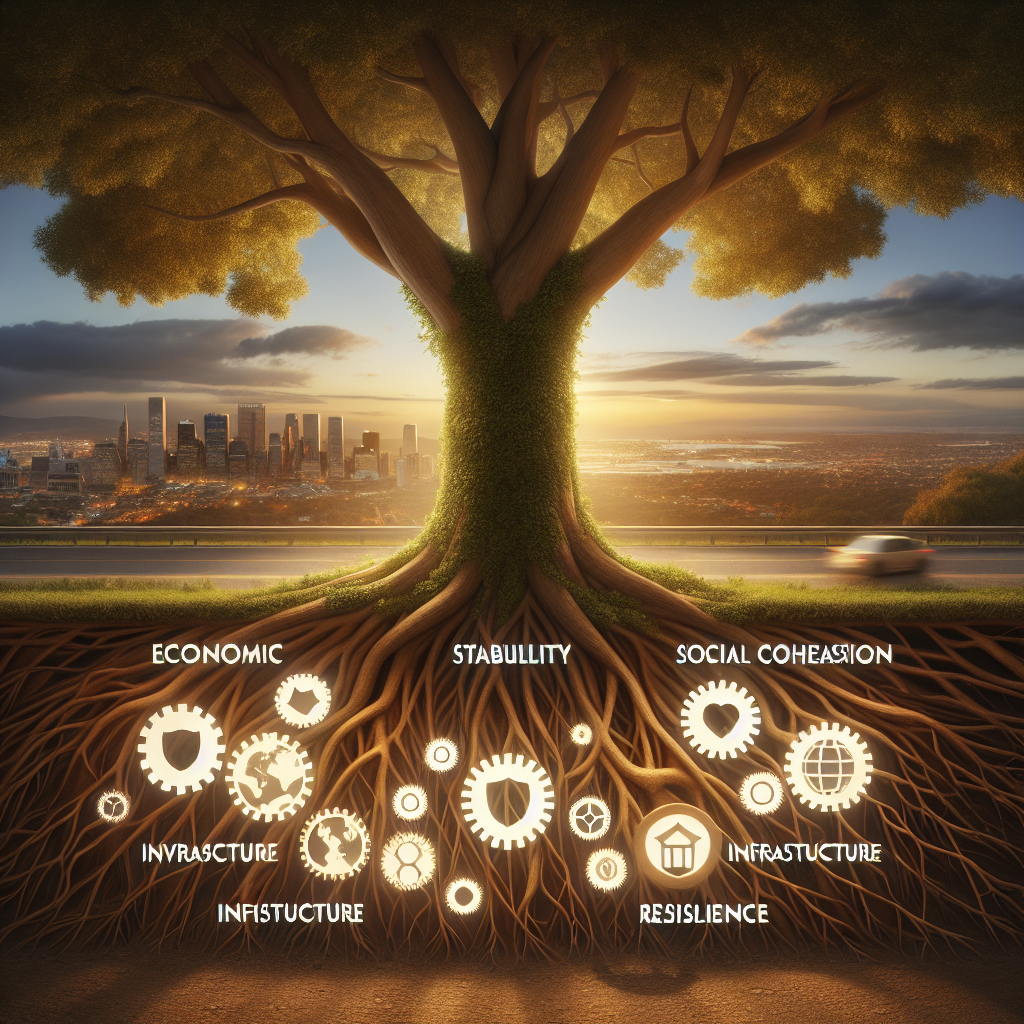The Role of Domestic Policy in National Security
National security is often perceived through the lens of military strength, international diplomacy, and global alliances. However, domestic policy plays a crucial, yet sometimes overlooked, role in ensuring a nation’s security. From economic stability to social cohesion, the internal frameworks of a country are foundational to its overall security architecture. In this article, we will explore how domestic policy intersects with national security, examining key areas where internal governance supports a nation’s safety and stability.
Understanding Domestic Policy
Domestic policy encompasses a wide range of government decisions and actions that affect the country’s internal affairs. This includes economic policies, healthcare, education, infrastructure, and law enforcement. Each of these elements contributes to the overall health and resilience of a nation, which in turn influences its ability to withstand and respond to external threats.

Economic Stability as a Pillar of Security
Economic stability is often considered the backbone of national security. A strong economy provides the resources necessary for adequate defense spending, research and development, and diplomatic endeavors. Moreover, economic policies that promote job growth, innovation, and fair trade can reduce poverty and inequality, thereby decreasing the likelihood of internal unrest and making the nation more resilient to external economic pressures.

For instance, during times of economic downturn, countries that have robust domestic financial policies can better weather the storm, maintaining social order and security. Economic resilience thus directly impacts a country’s ability to project power and influence on the global stage.
The Role of Social Cohesion
Social cohesion is another critical component of national security. Policies that promote equality, justice, and inclusion help foster a sense of unity and shared purpose among citizens. When people feel valued and respected, they are more likely to contribute positively to society and less likely to engage in activities that threaten national security, such as radicalization or civil unrest.
Education and healthcare systems also play a significant role in promoting social stability. An educated populace is better equipped to engage in meaningful civic discourse and make informed decisions, while accessible healthcare ensures that citizens remain healthy and productive. Both factors contribute to a stable and secure society.
Infrastructure and Security
Infrastructure is often seen as the physical backbone of a nation. Well-maintained roads, bridges, and public transportation systems facilitate economic activity and enable efficient responses to emergencies. Moreover, advancements in technology and cybersecurity are crucial in protecting critical infrastructure from external threats, such as cyber-attacks or natural disasters.
Domestic policy decisions regarding infrastructure investment can significantly impact national security. By prioritizing sustainable and resilient infrastructure projects, a nation can ensure that it remains functional and secure, even in the face of challenges.
Law Enforcement and Internal Stability
Effective law enforcement is essential for maintaining internal stability and security. Policies that ensure adequate training, resources, and oversight of law enforcement agencies help build trust between the police and the communities they serve. This trust is vital for preventing crime and addressing potential threats before they escalate into larger security issues.
Furthermore, domestic policies that promote transparency and accountability within law enforcement can help prevent abuses of power and protect citizens’ rights, contributing to a more secure and just society.
Conclusion
While national security is often associated with military and foreign policy, domestic policy is equally important in creating a secure and stable nation. By focusing on economic stability, social cohesion, infrastructure resilience, and effective law enforcement, countries can strengthen their internal foundations and enhance their overall security. As citizens and policymakers, understanding the interplay between domestic policy and national security is crucial for building a safer future for all.
Frequently Asked Questions
Why is economic stability important for national security?
Economic stability provides the resources necessary for defense spending, innovation, and diplomatic efforts. It also reduces poverty and inequality, decreasing the likelihood of internal unrest and making the nation more resilient to external pressures.
How does social cohesion contribute to national security?
Social cohesion fosters unity and shared purpose among citizens, reducing the likelihood of radicalization or civil unrest. Policies promoting equality, justice, and inclusion help create a stable and secure society.
What role does infrastructure play in national security?
Infrastructure supports economic activity and enables efficient emergency responses. Investments in sustainable and resilient infrastructure projects help protect against external threats, such as cyber-attacks or natural disasters.
How does law enforcement impact national security?
Effective law enforcement maintains internal stability by preventing crime and addressing potential threats. Policies ensuring training, resources, and oversight build trust between police and communities, contributing to a secure society.





Leave a Reply
You must be logged in to post a comment.